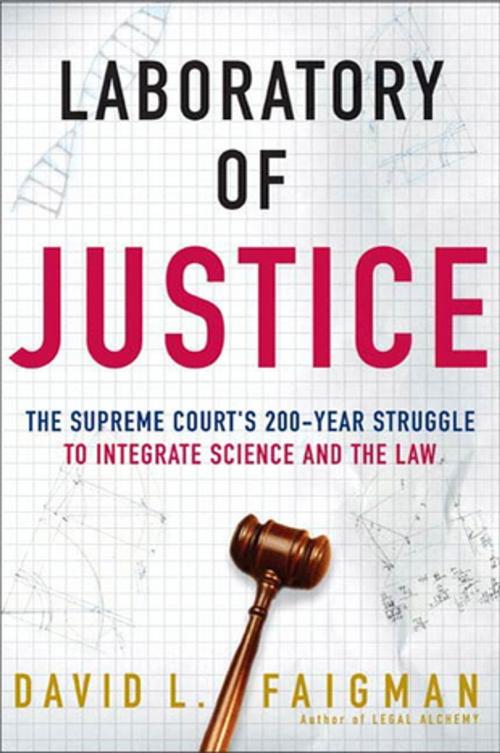Laboratory of Justice
The Supreme Court's 200-Year Struggle to Integrate Science and the Law
Nonfiction, Reference & Language, Law, Science & Technology, Social & Cultural Studies, Political Science, Government| Author: | David L. Faigman | ISBN: | 9781429923392 |
| Publisher: | Henry Holt and Co. | Publication: | May 1, 2005 |
| Imprint: | Times Books | Language: | English |
| Author: | David L. Faigman |
| ISBN: | 9781429923392 |
| Publisher: | Henry Holt and Co. |
| Publication: | May 1, 2005 |
| Imprint: | Times Books |
| Language: | English |
From the American Revolution to the genetic revolution, the U.S. Supreme Court's uneasy attempts to weave science into the Constitution
Suppose that scientists identify a gene that predicts that a person is likely to commit a serious crime. Laws are then passed making genetic tests mandatory, and anyone displaying the gene is sent to a treatment facility. Would the laws be constitutional?
In this illuminating history, legal scholar David L. Faigman reveals the tension between the conservative nature of the law and the swift evolution of scientific knowledge. The Supreme Court works by precedent, embedding the science of an earlier time into our laws. In the nineteenth century, biology helped settle the "race question" in the famous Dred Scott case; not until a century later would cutting-edge sociological data end segregation with Brown v. Board of Education. In 1973 Roe v. Wade set a standard for the viability of a fetus that modern medicine could render obsolete. And how does the Fourth Amendment apply in a world filled with high-tech surveillance devices?
To ensure our liberties, Faigman argues, the Court must embrace science, turning to the lab as well as to precedent.
From the American Revolution to the genetic revolution, the U.S. Supreme Court's uneasy attempts to weave science into the Constitution
Suppose that scientists identify a gene that predicts that a person is likely to commit a serious crime. Laws are then passed making genetic tests mandatory, and anyone displaying the gene is sent to a treatment facility. Would the laws be constitutional?
In this illuminating history, legal scholar David L. Faigman reveals the tension between the conservative nature of the law and the swift evolution of scientific knowledge. The Supreme Court works by precedent, embedding the science of an earlier time into our laws. In the nineteenth century, biology helped settle the "race question" in the famous Dred Scott case; not until a century later would cutting-edge sociological data end segregation with Brown v. Board of Education. In 1973 Roe v. Wade set a standard for the viability of a fetus that modern medicine could render obsolete. And how does the Fourth Amendment apply in a world filled with high-tech surveillance devices?
To ensure our liberties, Faigman argues, the Court must embrace science, turning to the lab as well as to precedent.















